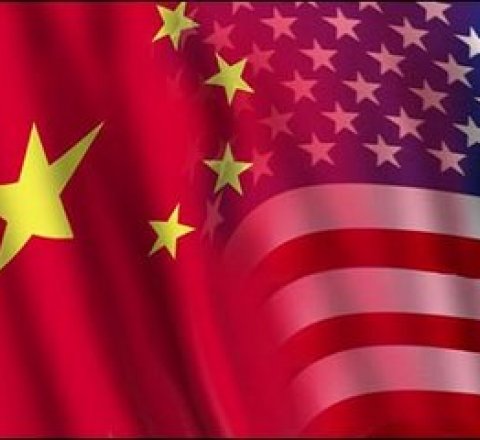C
hina has been rumbling away for the past decade like an unstoppable fiscal tank, diversifying, purchasing debt, expanding their military and talking to any who will listen about their role as a world leader.
On the financial front, many news pundits and financial advisors have backed their claims, pointing out that, (like Kenneth Rapoza from Forbes did in January), that the Chinese cannot afford to endanger the National Security of the US. Indeed, China has much too much to gain from a strong bilateral relationship with America.
| | | He's absolutely right but there is more than one way to cause mischief in the back alleys of international relations. |
This is the great dream of many: that China and the United States will lead together from opposite ends of the world to a mutually beneficial centre, spreading peace, prosperity and democracy to all. Or so it goes.
There are however, some worrying signs that China is not opting for the path of a dual superpower world. To begin with, American debt is currently helping to finance China's military expansion. China has an interest in keeping that debt relatively stable, while it can, while expanding their reach inside the United States and around the world. Next, there's China's continued relationship with Kim Jong Un's North Korea; a regime that manages not to topple due only to Chinese sponsorship.
North Korea's erratic and verbose behaviour seems like simple chest beating from a newly installed leader. After all, North Korea's chances of waging a successful war alone on the South are almost negligible. Could there be more moves on the chess board? Consider the following facts that would not have been lost on the Chinese:
- American military expenditure is one of the principal reasons for American debt to China, debt that is helping to expand the Chinese military.
- Since America's withdrawal from Afghanistan and Iraq, the question of military expenditure has achieved centre stage status due to the current fiscal crisis.
- Republicans and Democrats are bitterly split on the question of cutting back military expenditure.
- China's dispute with Japan, (America's strongest ally), over the Senkaku island chain continues to intensify.
Perhaps North Korea's belly aching is being orchestrated by their principal sponsors to continue American military expenditure, thereby supporting Chinese military expansion in the region, particularly where Japan and the Senkaku island chain is concerned.
Ironically, the Republicans who are more than a little paranoid about Chinese intentions will fight cuts to military spending, citing the 'new threat' of North Korea. In the unlikely event that war does eventuate in Korea, China will have achieved its principle goal of keeping the United States on an expensive war footing, at the cost of a few thousand 'mercenaries', (think back to the last war in Korea), men who China would want battle tested anyway. Ironically, in this way, the Republican Party has become almost as much of a puppet in an international Chinese theatre as the North Koreans.
| | | If China truly had any interest in becoming but one of two world superpowers, they would disassociate themselves from the barbaric regime of Kim Jong Un, support efforts for change from within and establish peaceful links with the subsequent newborn democracy. If trade was China's end game, as suggested by Rapoza and others, China would be the main beneficiaries of a North Korea prospering alongside the South or better, a unified Korea dedicated to democracy and trade. |
That China instead bolsters a regime so economically backward as North Korea's suggests that China's strategy is political rather the economic. North Korea's hollow chest beating serves as a distraction designed to cost the Americans time, money and men.
These are not the actions of a country that wants to be a joint leader on the world stage. Historically, joint leadership is rarely attempted and, when it is, has rarely ended well.
Chinese strategy seems to be that there can only be one.
So please, let's not get dragged into another war that benefits no one but the Chinese.
